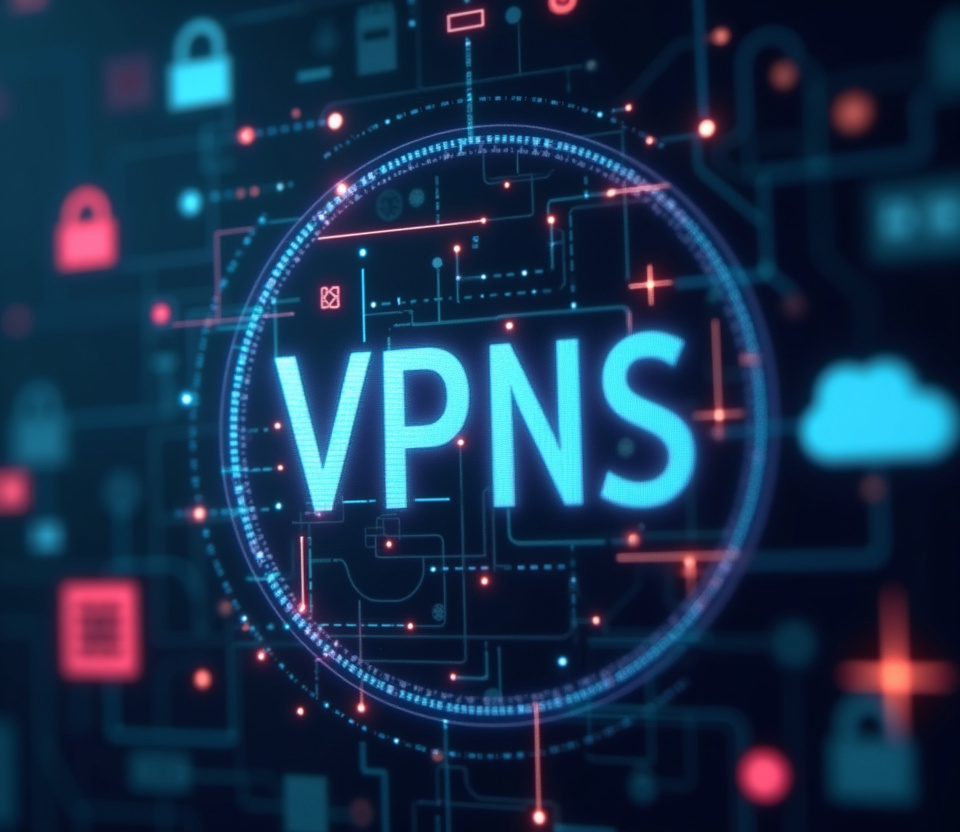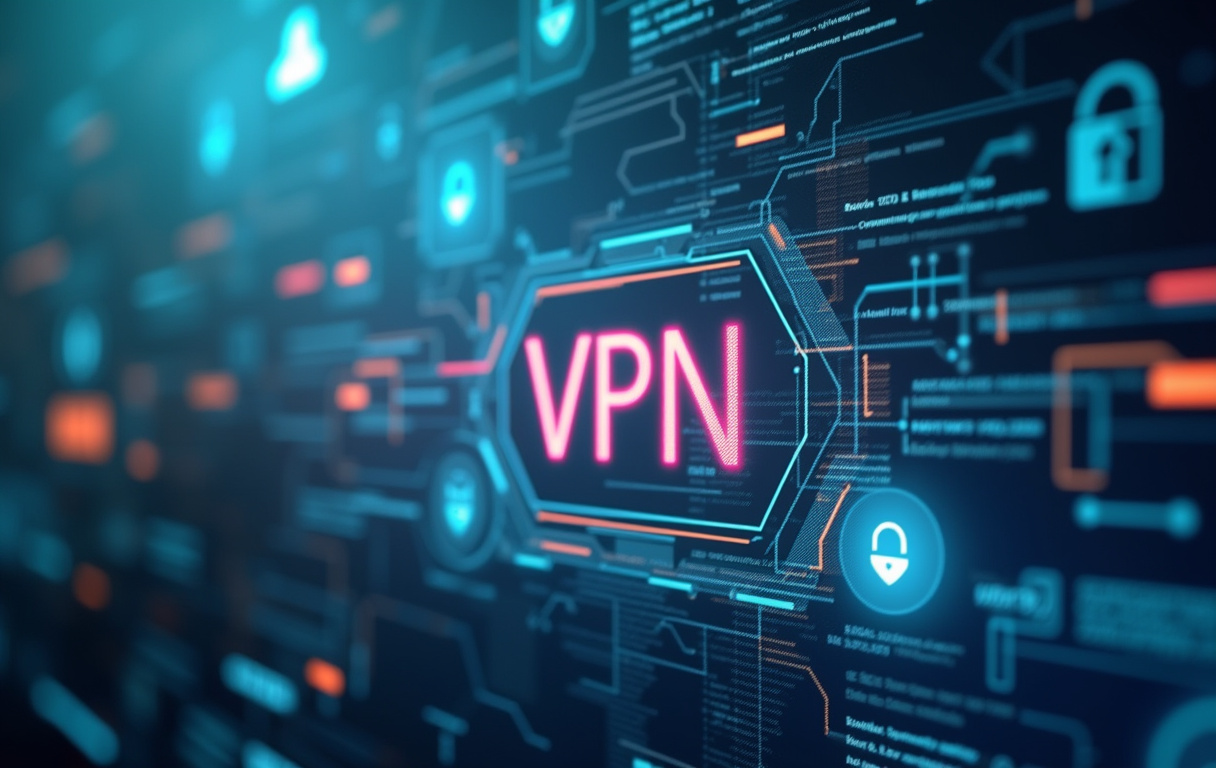VPNs for Hackathons: Securing Collaborative Programming

Table of Contents
Introduction to VPNs for Game Developers
Hackathons, those electrifying hubs of innovation where developers, designers, and creative minds converge to transform ideas into tangible realities, represent a unique blend of collaboration and competition. Fueled by passion, ingenuity, and copious amounts of caffeine, participants work tirelessly to build groundbreaking solutions within tightly constrained timeframes. The open and collaborative spirit that defines these events, however, also introduces significant security considerations that warrant careful attention.
The inherently public nature of hackathon environments, often reliant on shared networks and involving the exchange of sensitive data and intellectual property, makes securing these events a paramount concern. Protecting code integrity, ensuring secure 'data sharing' among participants, and safeguarding against cyber threats are all critical components of a successful and secure hackathon experience. In this digital age, a Virtual Private Network (VPN) is increasingly recognized as an indispensable tool for bolstering security and fostering a safe collaborative environment at hackathons, acting akin to a digital shield against potential vulnerabilities.
A VPN, in its essence, establishes a secure and encrypted connection between a user's device and a remote server, effectively creating a protected tunnel for all online activity. This encrypted tunnel shields sensitive data from prying eyes and malicious actors, particularly when using public Wi-Fi networks, which are often notoriously insecure and susceptible to eavesdropping. By encrypting internet traffic, a 'hackathon VPN' thwarts attempts to intercept sensitive information such as login credentials, API keys, and proprietary code, ensuring that intellectual property remains protected.
The benefits of deploying a VPN extend far beyond basic encryption. VPNs also mask a user's IP address, making it more difficult to track their online activity and identify their physical location. This added layer of anonymity is particularly valuable in hackathon settings where participants may be working on sensitive projects or competing against each other.
The anonymization provided by a VPN reduces the risk of targeted attacks and protects against potential privacy breaches. Moreover, VPNs are instrumental in facilitating seamless and secure data sharing among hackathon participants. Collaborative coding often involves the exchange of code snippets, design assets, and other confidential information.
Without a secure channel, this data is vulnerable to interception and theft. By establishing a secure network for collaboration, a VPN enables teams to confidently exchange sensitive materials without fear of compromise. This 'collaboration security' promotes a more productive and trusting environment, allowing participants to focus on innovation rather than constantly worrying about potential security risks.
This is particularly pertinent when dealing with sensitive project data, ensuring confidentiality and 'code protection' throughout the event. For many seasoned developers, a 'VPN for programmers' has become an essential tool for secure remote development, and its utility extends seamlessly into the hackathon arena. By providing a secure and encrypted connection, VPNs empower programmers to collaborate effectively, share data confidently, and protect their valuable code, regardless of their physical location or network environment.
A robust and well-configured VPN is no longer a luxury but a necessity for hackathons committed to fostering a secure, conducive, and innovative environment. The peace of mind provided by a VPN allows participants to fully immerse themselves in the hackathon experience, fostering a higher degree of 'collaboration security' and enabling them to explore cutting-edge technologies and push the boundaries of innovation without compromising on security.
The importance of a VPN in a hackathon environment is further underscored by the heightened security risks prevalent in such settings. The very nature of hackathons, with participants rapidly developing and deploying code, often under immense time pressure, can inadvertently introduce vulnerabilities that malicious actors can exploit. Open Wi-Fi networks, commonly provided at hackathon venues, amplify these risks exponentially.
These networks are often unencrypted, making them easy targets for attackers seeking to intercept sensitive data or inject malicious code. A VPN acts as a critical line of defense against these threats by encrypting all data transmitted over the network, rendering it incomprehensible to anyone who might be eavesdropping. This encryption is a vital component of 'code protection', safeguarding intellectual property and preventing unauthorized access to sensitive information.
Beyond the inherent vulnerabilities of open Wi-Fi, hackathons also attract individuals with varying levels of security awareness and expertise. While seasoned developers are typically well-versed in secure coding practices, less experienced participants may inadvertently introduce security flaws or use insecure tools that expose the entire network to risk. A VPN provides an additional layer of defense, mitigating the potential consequences of these unintentional errors.
For example, even if a participant accidentally commits an API key to a public repository, the VPN will prevent attackers from intercepting it and exploiting it. The proactive implementation of a 'hackathon VPN' significantly minimizes the risk of potential sophisticated attacks. Additionally, the use of a VPN helps cultivate a culture of security within the hackathon community.
By explicitly encouraging or requiring participants to use a VPN, organizers raise awareness about potential security risks and promote the adoption of secure coding practices. This heightened awareness is not only beneficial during the hackathon itself but also has a lasting impact on the participants' overall security posture. The threat landscape extends beyond simple data interception and the exploitation of coding vulnerabilities.
Hackathons are also attractive targets for denial-of-service (DoS) attacks, which can disrupt network connectivity and make it difficult or impossible for teams to access essential resources. While a VPN cannot entirely prevent DoS attacks, it can mitigate their impact by masking the user's IP address, making it more challenging for attackers to target specific individuals or teams. This is particularly crucial for teams working under tight deadlines, as any disruption to their workflow can be incredibly detrimental.
The secure 'data sharing' facilitated by a VPN also extends to protecting against man-in-the-middle (MitM) attacks, where an attacker intercepts communication between two parties, potentially stealing sensitive information or injecting malicious code. By encrypting all data transmitted over the network, a VPN makes it significantly more difficult for attackers to perform MitM attacks. Therefore, choosing the right 'VPN for programmers' is crucial.
The encrypted transmission of data, 'code protection' against malicious injection and preventing DoS attacks, makes VPNs a keystone to defend the network of digital infrastructure, and allowing 'collaboration security' within a hackathon. In this context, a VPN is not merely a convenience; it's a fundamental security tool that protects participants, their intellectual property, and the very integrity of the hackathon itself.
Selecting the ideal VPN solution for a hackathon requires a thoughtful evaluation of several critical parameters, including the number of anticipated participants, the specific level of security necessitated by the nature of the projects, and the budgetary constraints of the event. While the allure of free VPN services might be tempting, it's crucial to recognize that these options often come with significant limitations that can undermine both security and performance. These limitations may include restricted bandwidth, invasive data logging practices, and significantly slower connection speeds, all of which can impede collaboration and compromise the overall security posture of the hackathon.
Paid VPN services, conversely, typically offer a superior experience in terms of performance, security, and the breadth of features available. When assessing paid VPN options, it's essential to prioritize features such as robust encryption protocols (e.g., AES-256), a strict no-logs policy, and a geographically diverse network of server locations. A no-logs policy is paramount, ensuring that the VPN provider does not retain any records of your online activity, thus safeguarding your privacy and anonymity.
A wide range of server locations can be invaluable for circumventing geographical restrictions, accessing content that may be blocked in certain regions, and optimizing connection speeds by selecting a server closer to your physical location. Another crucial consideration is the user-friendliness of the VPN software. The software should be intuitive and easy to install and configure, even for participants who may not possess extensive technical expertise.
Clear and comprehensive instructions on how to connect to the VPN and utilize its various features are essential. Ideally, the VPN service should offer cross-platform compatibility, supporting a wide range of operating systems, including Windows, macOS, Linux, iOS, and Android, to accommodate the diverse array of devices used by hackathon participants. Ensuring 'collaboration security' requires careful consideration of the VPN's ability to support team-based activities.
Features such as shared VPN accounts or the ability to create secure sub-networks for individual teams can greatly enhance the collaborative experience. Furthermore, it's important to assess the VPN provider's reputation for reliability and customer support. A responsive and knowledgeable support team can be invaluable in resolving any technical issues that may arise during the hackathon.
Centralized management capabilities are particularly important if the hackathon organizers are providing the VPN service to all participants. This allows for streamlined user account management, monitoring of bandwidth consumption, and enforcement of security policies across all connected devices. Centralized management is essential for maintaining a consistent level of 'data sharing' security and ensuring that all participants adhere to the established security protocols.
The 'VPN for programmers' should also seamlessly integrate with existing security infrastructure, such as firewalls and intrusion detection systems, to provide a comprehensive and layered approach to security. Choosing a VPN that is interoperable with other security tools enhances the overall security posture of the hackathon and provides a more robust defense against potential threats. Ultimately, the selection of the right VPN solution for a hackathon is a critical decision that requires careful planning and consideration of the specific needs and goals of the event and the need for 'code protection'.
By prioritizing security, performance, and ease of use, organizers can ensure a safe, productive, and innovative environment for all participants.
Enhancing Security and Privacy of Online Platforms with VPNs
Beyond the core security benefits of encryption and IP address masking, a VPN offers a range of additional features that can significantly enhance the hackathon experience. Split tunneling, for instance, is a valuable feature that allows users to selectively route traffic through the VPN while allowing other traffic to bypass it. This can be particularly useful for tasks that don't require VPN protection, such as accessing local network resources or streaming media.
By selectively routing traffic, split tunneling can improve performance and reduce latency, ensuring a smoother and more responsive user experience. Another important consideration is the VPN's server infrastructure. A VPN provider with a large and geographically diverse network of servers can offer better performance and reliability.
A wider selection of server locations allows users to connect to servers closer to their physical location, reducing latency and improving connection speeds. Furthermore, a robust server infrastructure ensures that the VPN service can handle a large number of concurrent users without experiencing performance degradation. Protecting against DNS leaks is also a crucial aspect of VPN security.
When you visit a website, your device sends a DNS request to a DNS server to translate the domain name into an IP address. If the VPN is not properly configured, these DNS requests may be sent outside of the VPN tunnel, exposing your browsing history to your internet service provider (ISP) or other third parties. A reputable VPN provider will offer DNS leak protection to ensure that all DNS requests are routed through the VPN tunnel, preventing any leaks of your browsing activity.
In the context of 'collaboration security', it’s pertinent to consider the VPN's compatibility with various collaboration tools commonly used in hackathons, such as Git, Slack, and cloud-based IDEs. A VPN that seamlessly integrates with these tools can significantly enhance the collaborative workflow. For example, a VPN can provide a secure connection for accessing Git repositories, preventing unauthorized access to sensitive code.
Similarly, a VPN can encrypt Slack communications, ensuring that sensitive information shared within team channels remains private. A 'hackathon VPN' should also offer robust protection against malware and phishing attacks. Some VPN providers integrate malware scanning and phishing protection features into their VPN software, providing an additional layer of defense against these threats.
These features can help to identify and block malicious websites and files, preventing users from accidentally downloading malware or falling victim to phishing scams. Choosing a suitable 'VPN for programmers' also requires an understanding of tunneling protocols. OpenVPN, IKEv2/IPsec, and WireGuard are considered secure and reliable protocols.
It is best to avoid PPTP, which is an older protocol with known vulnerabilities. The encryption strength also plays a crucial part and AES-256 is the gold standard. Moreover, a kill switch feature automatically disconnects your internet connection if the VPN connection drops, preventing your data from being exposed.
This is a critical security feature, especially in hackathon environments where intermittent network connectivity is common. The aspect of 'data sharing' is critically dependent on the user experience. The VPN must allow quick and seamless data transfer while ensuring that the connection is secure and protected against unauthorized access.
This balance between usability and security is essential for encouraging widespread adoption of the VPN among hackathon participants. Hence, a good VPN balances speed, security, and functionality. By carefully considering these factors and selecting a VPN that meets their specific needs, hackathon organizers can create a safer, more secure, and more productive environment for all participants.
The Future of VPNs in Subscription Services: Trends and Predictions
Implementing a VPN effectively within a hackathon environment requires more than just selecting the right VPN solution; it necessitates a well-defined strategy for deployment, training, and ongoing maintenance. Hackathon organizers should proactively communicate the importance of using a VPN to all participants, emphasizing the security benefits and providing clear instructions on how to install and configure the VPN software. Providing a centralized installation guide or even pre-configuring devices with the VPN software can significantly streamline the onboarding process.
Furthermore, offering training sessions or workshops on VPN usage and security best practices can help participants understand the importance of using a VPN and empower them to take proactive steps to protect their data. The training should cover topics such as connecting to the VPN, verifying the VPN connection, and troubleshooting common issues. Ongoing monitoring and maintenance are essential for ensuring the continued effectiveness of the VPN deployment.
Hackathon organizers should monitor network traffic for any suspicious activity and promptly address any security vulnerabilities that may be identified. Regular updates and patches to the VPN software are crucial for maintaining security and ensuring compatibility with the latest operating systems and devices. It's also important to establish clear security policies regarding VPN usage and enforce those policies consistently.
These policies should outline the acceptable use of the VPN, the types of data that should be protected, and the consequences of violating the security policies. Regularly reviewing and updating the security policies is essential for adapting to evolving threats and ensuring that the policies remain relevant and effective. Securing 'data sharing' involves setting up proper file sharing protocols over the VPN like SFTP or SCP and disabling services like SMB which have known vulnerabilities.
All the access protocols must rely on strong password policies, and multi-factor authentication should be enabled where supported. Organizers must verify that proper 'code protection' measures are in place by performing periodic security audits of the VPN infrastructure and connected devices. These audits can help to identify and address any security vulnerabilities that may have been overlooked.
Furthermore, it's important to stay informed about the latest security threats and trends. Hackathon organizers should regularly consult security advisories and resources to stay abreast of the latest vulnerabilities and best practices. Sharing this information with participants can help to raise awareness and empower them to take proactive steps to protect their data.
Finally, consider incorporating VPN usage into the hackathon judging criteria. Rewarding teams that demonstrate a strong commitment to security can incentivize participants to adopt secure coding practices and prioritize 'collaboration security'. Providing extra points or recognition for teams that effectively utilize the VPN to protect their data and collaborate securely can further promote a culture of security within the hackathon.
In conclusion, implementing a 'hackathon VPN' is a multifaceted endeavor that requires careful planning, deployment, and ongoing management. However, the benefits of a secure and protected hackathon environment far outweigh the effort required. By taking proactive steps to secure their events, hackathon organizers can foster a culture of innovation and collaboration while protecting the valuable intellectual property of their participants, ensuring that the 'VPN for programmers' is not just a tool, but a cornerstone of a safe and successful event.
Stay Updated
Get the latest VPN news, tips, and exclusive deals to your inbox.




